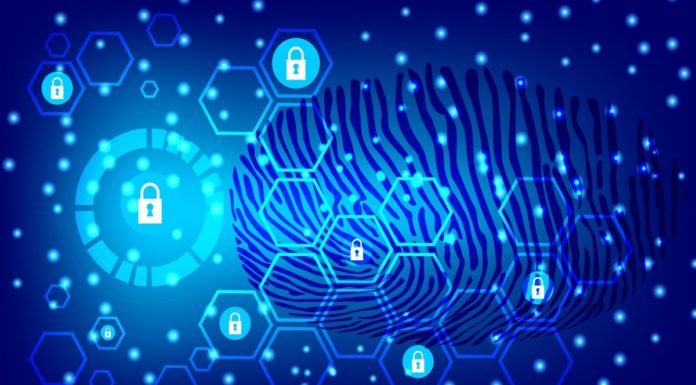In today’s dynamic work environment, remote mentoring is no longer a luxury but a necessity and is a valuable tool for nurturing young employees’ growth. Success in remote mentoring requires a strategic and empathetic approach.
This article will help you explore the nine best practices to empower organizations, mentors, and mentees. Join us as we uncover the keys to unlocking the potential of young professionals through remote mentoring.
Establish Clear Guidelines And Expectations
Establishing clear expectations and guidelines are vital components of a successful remote mentoring program. Create a detailed plan detailing your mentoring objectives before setting specific, SMART goals to give direction and achieve direction and clarity in your program.
Regular communication is key for engagement in virtual environments. Including frequent check-ins, using video calls for better interaction, and adapting the program based on feedback. Utilize robust technology platforms for effective management and scheduling of the mentoring relationship.
Flexibility in communication using the best virtual business phone system and a structured communication plan are vital. Agree on preferred communication methods, use informal online chats for quick touchpoints, and employ ice-breakers and conversation starters to build rapport.
Establish clear communication channels for consistent interaction and employ strategies to ensure active participation and accountability, such as setting meeting benchmarks and gathering post-session feedback.
Respecting each other’s time by considering different time zones and minimizing rescheduling. Conclude sessions positively to leave a lasting impression and encourage the mentee. Adherence to these guidelines fosters a rewarding remote mentoring experience, promoting professional growth and connection despite physical distance.
Train Mentors And Mentees In Their Roles
To ensure a successful remote mentoring program, it is crucial to thoroughly train both mentors and mentees in their respective roles, equipping them with the necessary skills and resources to engage in the mentoring relationship effectively.
Remote work and virtual mentoring systems require different skills and strategies than in-person mentorship. Mentors should be provided with conversation tips and structures for goal setting, enabling them to guide their mentees effectively.
Mentors should feel comfortable providing constructive feedback to senior executive mentees when necessary. Mentees should receive resources on giving and receiving feedback, creating a supportive and constructive environment.
Both mentors and mentees should be prepared to interact, ensuring a positive and productive mentoring experience. Training in these areas will enhance the effectiveness of the mentoring relationship in the remote work setting.
Be Proactive About Communication
In remote mentoring, effective communication is key to a successful relationship. Start by managing expectations: mentors should guide the process, and mentees should define their goals. Adapt your communication to the remote work environment, considering home challenges and varying schedules.
Always have a backup plan for technical issues, like switching from video to phone calls. Regular, informal check-ins using online chat or mobile tools can help maintain a connection, while video chats add a personal touch to scheduled meetings.
Utilize technology to enhance engagement and familiarize participants with available tools. Implement diverse programs like open programs, one-to-one sessions, and quick connections to cater to different needs. Maintain trust and confidentiality, using icebreakers for rapport-building and honoring commitments made during sessions.
Tailor the mentoring structure to the mentee’s preferences and use tools like time trackers and calendar sharing to stay aligned with their context. Finally, personalize discussions by starting meetings on a personal note and seeking post-session feedback for continuous improvement.
Start Small With A Pilot Program
Implementing a remote mentoring program for young employees can be more effective when beginning with a pilot program. Moreover, launching it is straightforward and only involves a few key steps:
- Set Clear Goals: Identify specific objectives aligned with organizational goals, like leadership development or skill enhancement.
- Choose the Right Participants: Focus on groups like new managers or high-potential employees for targeted, relevant sessions.
- Ensure Genuine Engagement: Participants should have real mentoring needs and relevant expertise for an authentic experience.
- Clarify Expectations: Communicate the commitment required from participants, including time investment and participation in feedback processes.
- Manageable Group Size: Start with 20-50 mentor-mentee pairs to facilitate meaningful feedback and maintain control.
- Foster Inclusion and Team Building: Use the program to develop a diverse workplace and engage in team-building activities, especially in remote settings.
- Engage Employees: Show investment in employee development to increase engagement and loyalty.
- Effective Structure and Pairing: Choose a mentoring format (1-on-1, peer, or circles) best suited to your goals and pair mentors and mentees based on shared skills and interests.
- Provide Resources and Templates: Offer materials to guide initial interactions between mentors and mentees.
- Continuous Feedback and Monitoring: Regularly check in with participants for insights and promptly address issues.
- Track and Report: Monitor signups, goal achievements, and feedback to measure effectiveness and demonstrate value.
These steps offer a practical framework for initiating a pilot remote mentoring program, ensuring it’s tailored to meet the organization’s and its young employees’ specific needs and goals.
Gather Regular Feedback For Adjustments
As the remote mentoring program with young employees progresses, it is crucial to establish a continuous feedback loop to gather valuable insights and make necessary adjustments for improvement.
Regular feedback sessions should be scheduled to discuss progress and ensure the mentoring relationship is on track. It is essential to encourage mentees to share their thoughts and suggestions for improvement during these sessions.
Feedback should be used to adjust mentoring strategies and approaches to meet the mentee’s needs better. Creating a supportive environment where mentees feel comfortable sharing their concerns and seeking guidance is even more important.
Mentors must offer specific, actionable feedback regarding mentee performance and development areas. This feedback loop ensures everyone involved knows exactly what is happening while permitting adjustments that enhance mentoring experience.
Mentees should also be encouraged to submit feedback, providing invaluable insights for furthering improvement next time. Success metrics may also help measure and guide future adjustments of mentoring programs.
Match Mentors And Mentees Strategically
Assessment is key when matching mentors and mentees, to ensure compatibility and effective support. Consider their professional goals, skillset and areas of expertise so as to form an enjoyable working relationship that benefits both parties involved.
Personality traits, communication styles and working preferences must all be carefully considered in order to foster optimal collaboration. When pairing mentors and mentees together it is also vitally important that diversity, inclusion and perspectives from diverse backgrounds and experiences be prioritized.
Continuously evaluate and adjust mentor-mentee pairings to address evolving needs and ensure productive connections.
Choose Individuals With Good Social Skills And Confidence
When selecting mentors for a remote mentoring program with young employees, choosing individuals with strong social skills and confidence is crucial. These qualities are essential for effective communication and relationship-building.
Mentors that are confident and assertive in their interactions can more efficiently guide and support their mentees, creating an encouraging and stimulating atmosphere conducive to growth and development of both themselves as well as those they mentor.
Mentors possessing strong social skills can navigate and address any potential hurdles more successfully, providing more enriching and productive mentoring experiences to mentees. Furthermore, having confident mentors creates an encouraging and welcoming atmosphere where mentees feel safe seeking guidance or sharing concerns openly.
Provide Learning Resources Beyond Mentorship
To enhance the mentoring experience for young employees, providing a wide range of learning resources beyond mentorship is essential. While mentorship is valuable for personal guidance and support, offering additional learning resources can further enrich their development.
By providing their mentees with different perspectives and insights, curating educational resources such as articles, papers, videos can enhance their mentoring experience. Shadowing opportunities allow mentees to gain first-hand knowledge and abilities for professional success.
Create regular newsletters to foster a sense of community among mentees and keep them engaged and informed. Encouraging collaborative learning by solving problems collaboratively or providing opportunities to work on projects can promote skill development while transmitting intangible skills from mentor to mentees.
Set An Example For Participants
Be a beacon of professionalism and foster an atmosphere of growth by setting an exemplary example in work ethic, communication and continuous learning as an online mentor. Establishing high standards among participants through your actions and behavior.
Displaying positive attitudes, adaptability and resilience when facing challenges will encourage their mentees to do the same. Demonstrating effective time management, organization and prioritization skills can assist participants in managing their workload efficiently.
Active listening, empathy and constructive criticism will serve to establish effective mentorship techniques. Furthermore, model continuous learning for your mentees to encourage an ongoing mindset of continuous growth as they pursue ongoing opportunities to learn more about themselves and develop professionally.
Conclusion
Remote mentoring can be an invaluable asset to organizations when it comes to developing young employees’ abilities and potential. Organizations can create successful remote mentoring programs by following best practices such as creating clear guidelines, offering training courses, encouraging proactive communications between team members, and receiving regular feedback on program effectiveness.
Strategic matching of mentors and mentees and including learning resources further enhance the mentoring experience. By implementing these practices, organizations can effectively support the growth and development of their young employees through remote mentoring.















